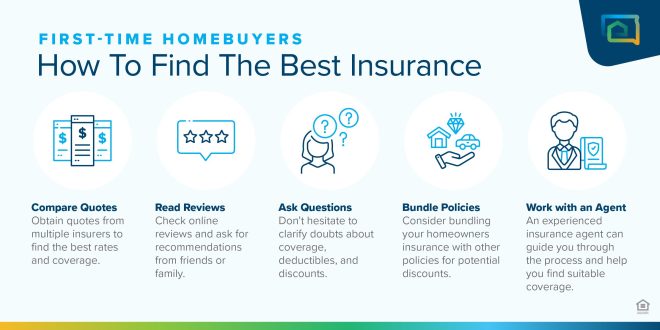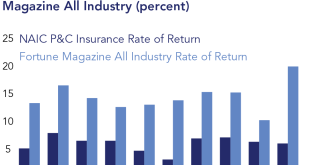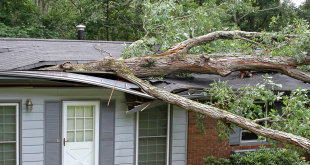Buying your first home is a huge milestone! But amidst all the excitement of choosing paint colors and imagining future barbecues, there’s a less glamorous, but super important, piece of the puzzle: homeowners’ insurance. It might seem like just another expense, but trust me, it’s the financial safety net you absolutely need. It’s there to catch you when life throws unexpected curveballs, like a kitchen fire or a tree falling on your roof. Let’s break down the basics so you can navigate this like a pro. After all, nobody wants surprises when it comes to protecting their biggest investment.
Understanding the Basics of Homeowners’ Insurance
What Does Homeowners’ Insurance Cover?
Okay, so what exactly does this insurance thing cover? Think of it as having a few key shields protecting you and your stuff. I remember when my friend’s apartment flooded – thankfully, she had insurance! A standard policy typically includes these main coverages:
- Dwelling Coverage: This is the big one. It covers the cost to rebuild or repair your home if it’s damaged by a covered event, like a fire, windstorm, or even vandalism. It’s basically the safety net for the structure of your house.
- Personal Property Coverage: All your belongings – furniture, clothes, electronics, that vintage record collection – are covered if they’re stolen or damaged in a covered event. Imagine losing everything in a fire; this coverage helps you replace it.
- Liability Coverage: This is your “oops, I’m so sorry!” coverage. If someone gets injured on your property – say, they trip on your front steps – and you’re found liable, this helps cover their medical bills and legal expenses. Nobody wants to get sued, right?
- Additional Living Expenses (ALE): Also known as “loss of use” coverage. If a covered event makes your home unlivable (think major fire or flood), this pays for temporary housing, meals, and other living expenses while your home is being repaired. It’s like a mini vacation… under not-so-vacation-like circumstances.
Types of Homeowners’ Insurance Policies
Did you know there are different kinds of policies? Yeah, me neither, at first. You’ll hear about HO-1, HO-2, HO-3, HO-5, HO-8… it can sound like alphabet soup. The differences lie in what they cover. HO-3 is the most common type, and for good reason. It’s an “open perils” policy for your dwelling, meaning it covers all damages except those specifically excluded in the policy (like floods or earthquakes – those usually need separate policies). For your personal property, it’s usually “named perils,” meaning it only covers damages from events specifically listed in the policy. Honestly, HO-3 is usually the sweet spot, offering pretty comprehensive protection for most homeowners. It’s definitely what you’ll want to look into as a first-time buyer. So, definitely keep an eye out for this option when you’re shopping around for homeowners’ insurance.
Determining Your Coverage Needs
Calculating Your Dwelling Coverage Amount
Here’s a crucial point: your dwelling coverage should be based on the rebuilding cost of your home, not its market value. I know, it’s tempting to insure it for what you paid, but that includes the land, which isn’t going anywhere. Rebuilding cost is how much it would take to reconstruct your house from the ground up, considering labor and materials. Get a professional appraisal or use a cost estimator to get an accurate number. Trust me, you don’t want to be underinsured if disaster strikes.
Assessing Your Personal Property Value
Take a good look around your house. What’s all that “stuff” worth? Create an inventory of your possessions, estimating their value. Pictures and videos can be lifesavers! Some people even keep receipts for big purchases. If you have high-value items like jewelry, art, or collectibles, consider “scheduling” them. This means specifically listing them on your policy with their appraised value, so you get full coverage if something happens. I’ve heard horror stories of people losing valuable items and not being fully compensated because they didn’t have them scheduled.
Choosing Liability Coverage Limits
Don’t skimp on liability coverage! It protects you if someone is injured on your property and sues you. Lawsuits can be expensive, so it’s better to be over-prepared than under. Think about how much you could potentially lose in a lawsuit – including your assets and future income – and choose a limit that adequately covers that. A million dollars might sound like a lot, but it’s often a good starting point. Think of it as peace of mind, knowing you’re protected if the unthinkable happens.
Finding the Right Homeowners’ Insurance Policy
Shopping Around and Comparing Quotes
Don’t just go with the first quote you get! Shop around and compare prices from multiple insurance companies. Use online comparison tools, but also consider working with an independent insurance agent. They can help you compare policies from different companies and find the best coverage for your needs and budget. I once saved a ton of money just by getting a few extra quotes. It’s worth the effort!
Understanding Deductibles
Your deductible is the amount you pay out-of-pocket before your insurance coverage kicks in. Higher deductibles usually mean lower premiums, but you’ll have to pay more if you file a claim. Lower deductibles mean higher premiums, but you’ll pay less out-of-pocket. Think about your financial situation and risk tolerance when choosing a deductible. Can you comfortably afford to pay a higher deductible if something happens? Or would you rather pay a bit more each month for a lower deductible? It’s a personal choice.
Factors Affecting Your Homeowners’ Insurance Premiums
Lots of things can affect how much you pay for insurance. Here are some of the biggies:
- Location: Areas prone to natural disasters (like hurricanes or wildfires) typically have higher premiums.
- Age of Home: Older homes might have higher premiums due to outdated wiring or plumbing.
- Construction Materials: Homes built with fire-resistant materials might get a discount.
- Credit Score: In many states, your credit score can impact your premiums.
- Claims History: If you’ve filed claims in the past, you might pay more.
- Security Features: Security systems, smoke detectors, and deadbolt locks can lower your premiums.
Basically, anything that makes your home riskier to insure can raise your rates. It’s kind of like driving. You’re a new driver, you’ll pay more, right? Same kind of deal.
Filing a Homeowners’ Insurance Claim
Documenting the Damage
If something happens, document everything! Take photos and videos of the damage before you start any repairs. This is crucial for your claim. Imagine trying to explain the extent of the damage without any evidence. Not fun! The more proof you have, the smoother the claims process will be. It’s worth the effort, trust me. You’re always glad you took photos, never sad.
Contacting Your Insurance Company
Report the claim to your insurance company as soon as possible. They’ll give you instructions on what to do next and assign you a claims adjuster. Be prepared to provide information about the incident, the damage, and your policy details. Keep a record of all communication with the insurance company. Organization is key here. You’ll probably have to fill out some paperwork and provide some documents. It’s a bit of a hassle, but it’s part of the process.
Working with the Claims Adjuster
The claims adjuster will inspect the damage and assess the amount of the loss. Be prepared to meet with them and answer their questions. Get estimates from contractors for the repairs. If you disagree with the adjuster’s assessment, don’t be afraid to negotiate. You have the right to get a fair settlement. If you’re not sure how to proceed, consider hiring a public adjuster to represent you. It might cost you some money, but it could be worth it in the long run.
So, there you have it! Homeowners’ insurance might seem complicated, but understanding the basics can empower you to make informed decisions and protect your biggest investment. It really is a non-negotiable part of responsible homeownership. Don’t wait until disaster strikes to think about it. Start shopping around, compare quotes, and find the right policy for your needs. And hey, maybe share your homeowners’ insurance experiences with other first-time buyers? We’re all in this together! Happy house hunting and insuring!
 seeme
seeme




